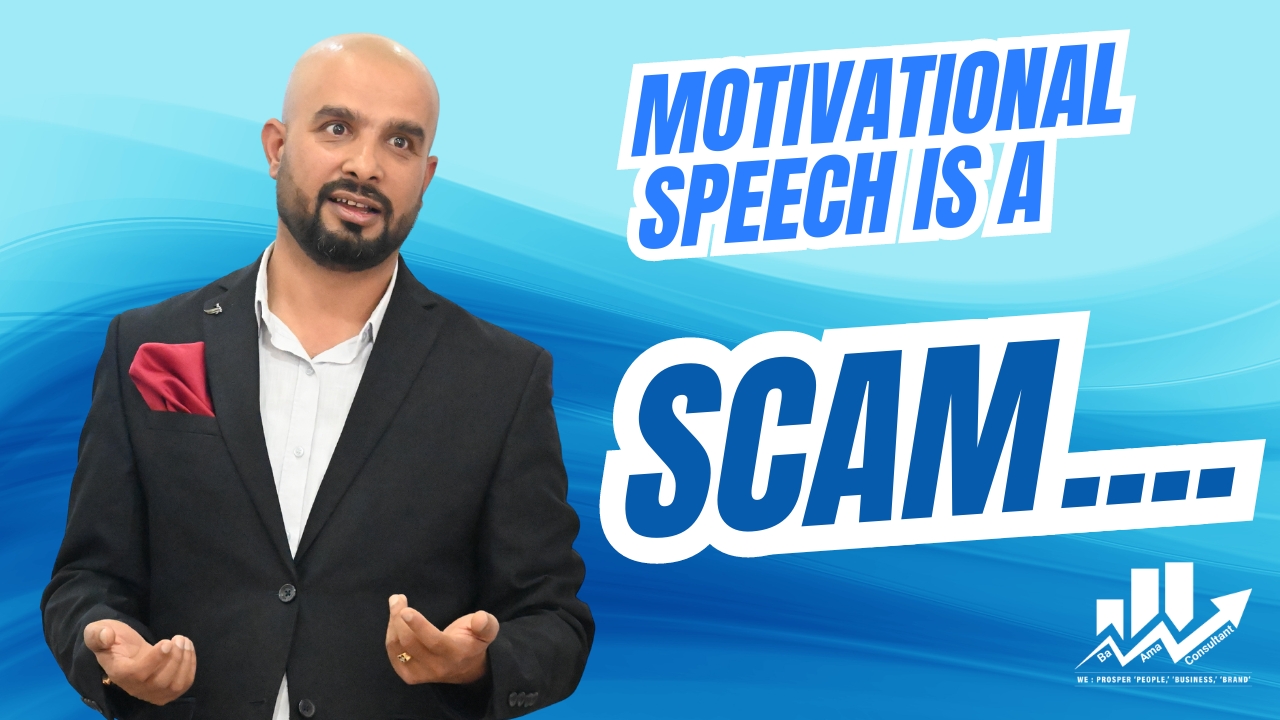In today’s world, motivational speeches are everywhere. From fiery speeches by Tony Robbins to the life lessons of Les Brown, these speakers have mastered the art of making us feel empowered and ready to conquer the world. However, while motivational speeches can ignite a temporary sense of inspiration, they can’t replace the practical skills needed to succeed. Without the right skill set, all the motivation in the world is useless, especially in industries like healthcare where the demand for specialized skills is ever-growing.
In 2025, the future of many professions, including healthcare, will be shaped by rapid technological advances and the need for highly trained professionals. Let’s explore why motivational speeches alone aren’t enough and why building a solid skill set is critical for longterm success.
The Reality Check: Why Skills Matter More Than Motivation
Motivational speeches can provide a spark, but they cannot replace the real-world skills required for success. Without the proper qualifications, certifications, and hands-on experience, even the most motivated individual will struggle to find their footing. In fields like healthcare, where the stakes are high, success is dependent on having the right skills, not just the right mindset.
As we look ahead to 2025, healthcare professionals—doctors, nurses, and technicians—will need to be more skilled than ever before. The rapid growth in medical technology, combined with a global aging population, means that the healthcare industry will continue to evolve at an unprecedented pace. But with this growth comes increased competition and the demand for highly specialized knowledge. Here’s why building a skill set is more important than ever.
Skills in 2025: What Healthcare Professionals Need
The healthcare industry is one of the most dynamic fields today. According to the World Economic Forum, healthcare professionals will be in high demand, but the expectations for these roles are increasing. By 2025, healthcare professionals will need to master a combination of technical, digital, and soft skills to stay competitive. Below are the key skills that will define success for healthcare workers in the coming years:
- Advanced Technical Skills: As medical technology continues to evolve, healthcare professionals will need to stay updated on new tools, treatments, and diagnostic methods. This includes understanding AI-driven diagnostics, robotic surgeries, and electronic health records.
- Digital Literacy: Telemedicine and digital healthcare are becoming the norm. Healthcare professionals who can efficiently use digital platforms, AI-powered healthcare tools, and patient management systems will be in high demand.
- Emotional Intelligence: Despite the increase in technology, the human element of healthcare is still essential. Professionals with strong emotional intelligence can better connect with patients and provide compassionate care, improving patient outcomes.
- Critical Thinking and Problem-Solving: The ability to interpret data and make quick, informed decisions is essential, particularly in high-pressure environments like emergency rooms and intensive care units.
- Continuous Learning: Healthcare professionals must commit to lifelong learning. New technologies, treatments, and best practices are constantly emerging, and staying updated is crucial to remaining relevant in the field.
- Cultural Competence: With the world becoming more interconnected, understanding and respecting cultural differences in healthcare is critical for providing effective patient care, especially in diverse communities.
The healthcare industry will remain stable and secure, largely due to the growing aging population and continuous advancements in medical technology. However, healthcare workers who fail to keep up with these changes, despite being highly motivated, will find it difficult to advance in their careers.
World Economic Forum Data on Future Jobs
According to the World Economic Forum’s Future of Jobs report, healthcare is one of the fastest-growing industries, with a significant demand for skilled professionals. The aging population and advancements in medical technology are key drivers of this growth. However, only those with the right combination of technical and soft skills will thrive in the evolving job market.
Healthcare professionals will need to reskill and upskill to meet the demands of the future. For example, healthcare technicians may need to operate complex AI-driven equipment, and doctors will need to use big data to make more informed decisions. The World Economic Forum stresses that continuous learning and adaptability will be crucial for anyone looking to succeed in healthcare by 2025.
The Role of Motivation: Inspiration Plus Action
While skills are the bedrock of success, motivation plays a supporting role. It’s the fuel that keeps people pushing forward, especially when the road gets tough. However, as the title suggests, motivational speeches alone are not enough. They become truly effective when paired with action and skill development.
One of Nepal’s leading motivational speakers, Mr. Diwakar Rijal, embodies this principle in his speeches. He offers a unique perspective on the relationship between motivation and skillbuilding. He rose to prominence by emphasizing the importance of personal growth, resilience, and skill acquisition. Mr. Rijal combines motivational speaking with practical advice on how to develop skills that lead to success. He doesn’t just motivate his audience , he equips them with the tools and strategies they need to develop the skills that lead to tangible results. His speeches focus on the balance between motivation and skill development, encouraging people to focus on continuous learning and personal improvement.
For healthcare professionals and others looking to succeed in 2025, Diwakar Rijal’s message is clear: while motivation can ignite your passion, it’s the skills you build that will carry you forward.
Conclusion: Skills First, Motivation Second
While motivational speeches can inspire and energize us, they are not a substitute for practical skills. In fields like healthcare, success is determined by your ability to master both technical and soft skills. As we approach 2025, healthcare professionals must adapt to an evolving landscape shaped by technological advancements and an aging population.
Motivational speakers like Diwakar Rijal can inspire us to pursue our goals, but the true path to success lies in continuous learning and skill development. The combination of motivation and action is what turns dreams into reality, making motivational speeches effective only when paired with a strong commitment to building the right skill set.

